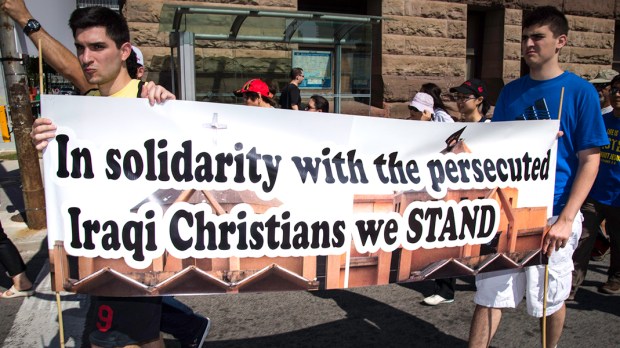The Trump Administration should build on the commitments it has made to elevate religious freedom as a priority in American foreign policy and national security strategy, said a religious freedom commission that has strong influence with the U.S. State Department.
The administration can do that by “vigorously implementing” laws such as the International Religious Freedom Act, said Daniel Mark, chairman of the United States Commission on International Religious Freedom (USCIRF).
The commission issued its 2018 report, finding a total of 16 countries where religious freedom is so restricted that those nations should be given a special designation by the State Department—Countries of Particular Concern, or CPCs—that could lead to sanctions. CPCs are governments that engage in or tolerate systematic, ongoing, egregious violations of religious freedom.
Ten of the 16 countries USCIRF recommended were designated CPCs by the State Department in December 2017: Burma, China, Eritrea, Iran, North Korea, Saudi Arabia, Sudan, Tajikistan, Turkmenistan, and Uzbekistan. In addition, USCIRF recommended six others for the designation: Central African Republic, Nigeria, Pakistan, Russia, Syria, and Vietnam.
Twelve countries were also recommended for designation as Tier 2 CPCs, because religious freedom violations meet one or two, but not all three, of the elements of the systematic, ongoing, egregious test: Afghanistan, Azerbaijan, Bahrain, Cuba, Egypt, India, Indonesia, Iraq, Kazakhstan, Laos, Malaysia, and Turkey.
For the second year in a row, USCIRF also listed Entities of Particular Concern (EPCs), as well. These are non-state actors that violate the freedom of religion of people in areas under their control. This designation was created by the 2016 Frank R. Wolf International Religious Freedom Act. USCIRF recommended three such groups for designation as EPCs in 2018: the Islamic State of Iraq and Syria (ISIS) in Iraq and Syria; the Taliban in Afghanistan; and al-Shabaab in Somalia.
“Sadly, religious freedom conditions deteriorated in many countries in 2017, often due to increasing authoritarianism or under the guise of countering terrorism,” said Mark. “Yet there is also reason for optimism 20 years after the passage of the International Religious Freedom Act. The importance of this foundational right is appreciated more now than ever, and egregious violations are less likely to go unnoticed.”
The commission also noted progress in the area of religious freedom in 28 countries in 2017.
“USCIRF also urges the administration to prioritize seeking the release of religious prisoners of conscience abroad, and to work closely with international partners in efforts to promote freedom of religion or belief for all.”

